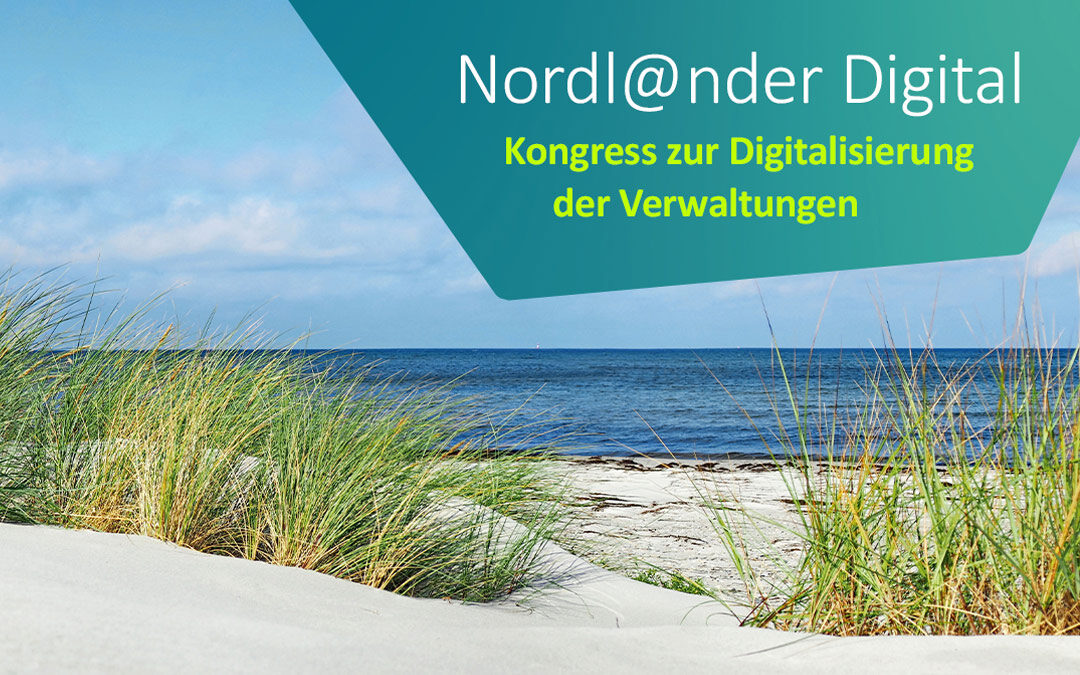The coronavirus pandemic has given digitalization a boost. The Nordl@nderDigital in Rostock will once again focus on where progress is being made and what challenges the digital transformation poses for public authorities. The annual congress offers the administrations of the five northern German federal states (Schleswig-Holstein, Hamburg, Bremen, Lower Saxony and Mecklenburg-Western Pomerania) as well as players from the digital economy a broad forum for networking and exchanging experiences on digital transformation. Christian Pegel, Minister of the Interior, Building and Digitalization of the state of Mecklenburg-Vorpommern, welcomed the numerous guests to the Hanseatic city for the third edition of Nordl@nderDigital, which took place for the first time in the city.
“In presentations, specialist forums and workshops, we informed participants from various authorities about the status of digitalization in administration, shared our experiences and, above all, discussed the constantly new opportunities and challenges of digital change. Our main focus has always been on the fact that behind the technical possibilities are administrative processes that need to be adapted to our current times. This requires and enables a new culture of cooperation – and we want to inspire enthusiasm for this,” said Digitalization Minister Christian Pegel, explaining the aims of the day-long congress in Rostock. Around 200 participants from public authorities and their service providers from northern Germany attended the event.
“After two years in digital format due to the coronavirus pandemic, we had the opportunity to meet and exchange ideas directly at the third edition today. Digitalization has received a significant boost over the past two years, not least because of coronavirus. For example, we have created the conditions for our employees to work with mobile technology and have online platforms available to them for collaboration. Finding a good way of working together and distributing tasks wisely – this is a crucial key to the success of digitalization,” said the Minister. The one-for-all principle that the federal and state governments have agreed on for administrative digitization is the right way forward: “It makes no sense for every state and every municipality to go it alone. That is not feasible.”
Another example: “We are taking a consistent step in Mecklenburg-Vorpommern by pooling the resources for IT and digitalization of the state administration in the new Centre for Digitalization Mecklenburg-Vorpommern. We are turning the many small IT units in the departments into one large, powerful team and are thus better able to meet the increasingly demanding cyber security requirements, pool our knowledge for digital administration and create transparency and synergies.”
Christian Pegel pointed out that digitalization is about “creating solutions for people together. Administration has to do with people, at both ends of the data line. People must be at the heart of digitalization. Only if our digital services bring real added value will they be used and recommended to others.”
User centricity is an important keyword: “Applications must be digitized in such a way that users can do something with them. If you have three questions about a digital application and have to start from the beginning five times, you will drop out and go back to the office. But we also need to keep our administrative staff in mind. We need applications that make their work easier.” A good example of both is the digital building permit, which the state has developed together with the district of Northwest Mecklenburg as part of the implementation of the OZG and whose presentation at the congress was met with great interest.
aconium GmbH was also represented at the congress with its own information stand. The employees on site advised interested guests on the various topics and services of aconium GmbH, for example in the areas of IT security, geoinformation and funding advice for the implementation of digital projects. “After a long time, participating in Nordl@nderDigital once again offered the opportunity to enter into dialogue with regional players from the digital economy and authorities,” emphasized Henrik Nürnberger, Project Manager at aconium GmbH in the Mecklenburg-Vorpommern regional office.


